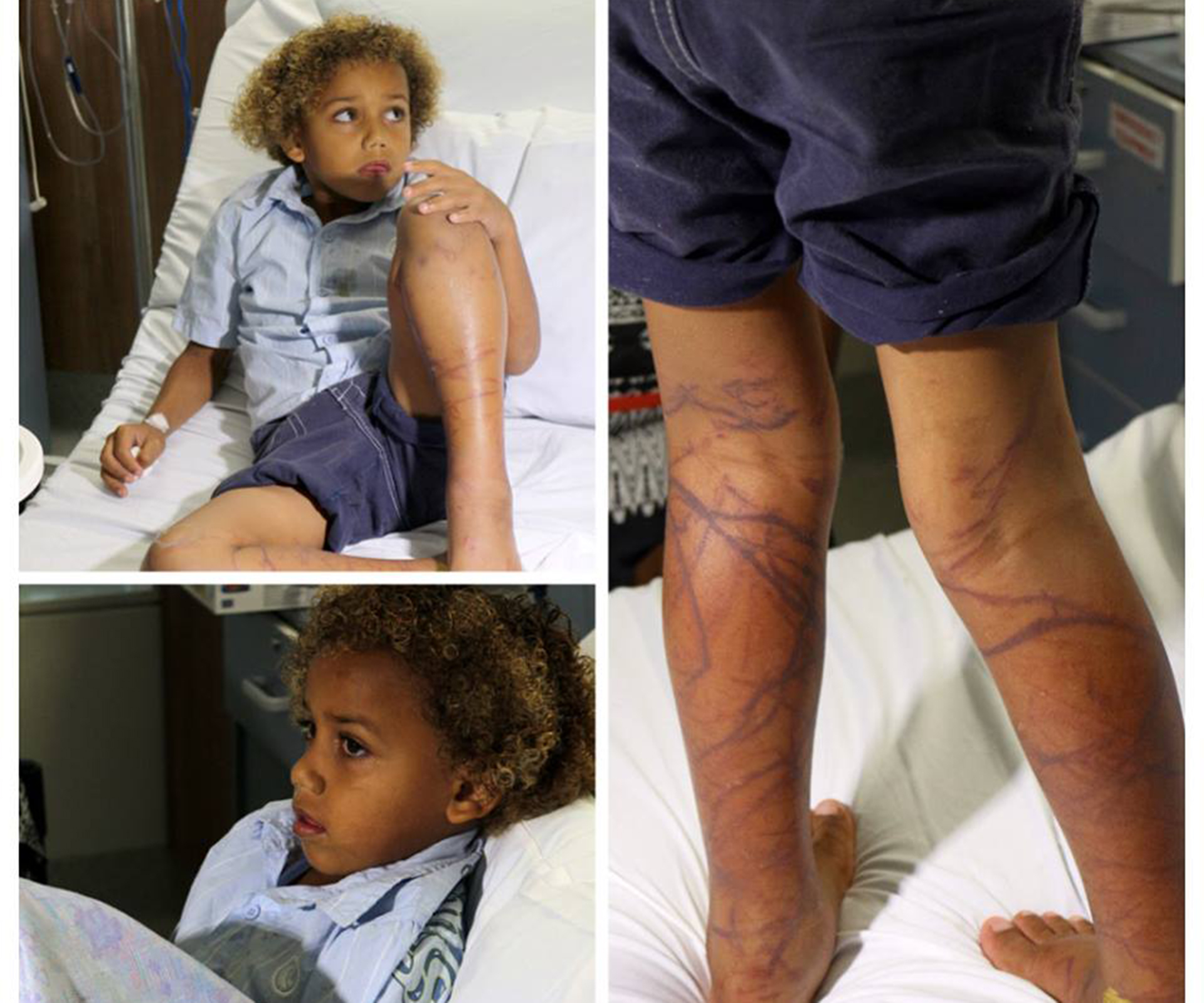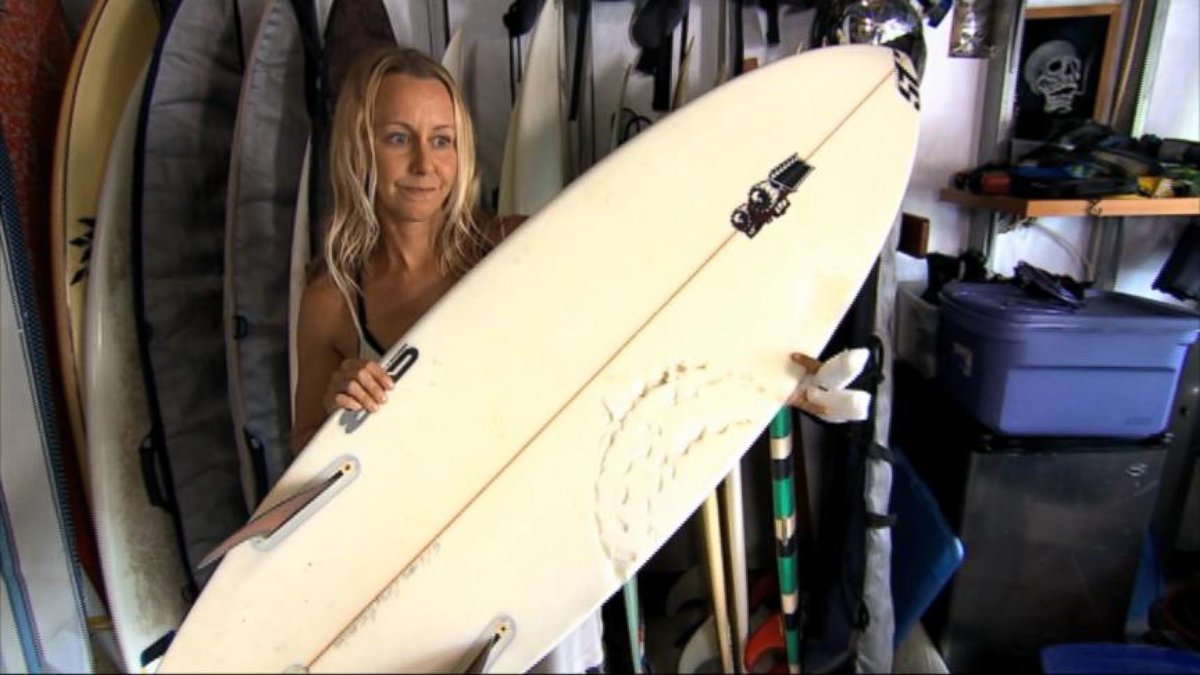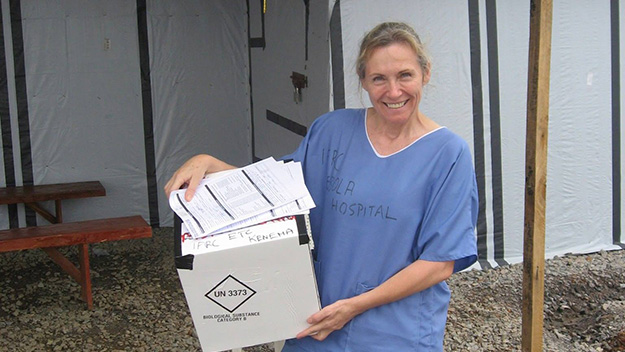The Mackay Hospital and Health Service Facebook page said that “Tyrique was one of three children treated in hospital for jellyfish stings” on that same day.
He spent the night in the Intensive Care Unit before being transferred to the ward on Tuesday.
For what would be a traumatizing experience for a young boy, Dr Shane Brun from the Emergency Department said an early dose of antivenom on the way to the hospital is what probably saved Tyrique’s life.
“Box jellyfish are lethal – people can die. The pain is significant and distressing and can leave to heart and breathing problems. Fortunately he received box jellyfish antivenom very quickly and that most likely saved his life because once symptoms start it’s a rapid progression to collapse and cardiac arrest,” Dr Brun said.
The jellyfish struck both Tyrique’s legs, leaving harsh purple coloured lashings across the back and front.
Along with box jellies, Irukandji jellyfish are the most dangerous marine stingers found in Queensland waters.
Bucasia beach, where Tyrique and his family were swimming, is one of the many beaches in Northern Queensland that have a stinger-resistant enclosure throughout summer.
Nets are put in place along this stretch due to longer stinger seasons and warmer water compared to the South.
It is unclear at what section of the beach the little boy was stung at, but we wish him a belated happy birthday and a speedy recovery.
What should you do in the event of a box jellyfish sting?
-Do not rub the victims skin
-Avoid getting sand on the wound
-Irrigate the area with lots of vinegar. Vinegar is the tried and tested way to treat a marine sting and most beaches have containers available for use if a sting occurs
-Call 000 and seek medical treatment
-Look out for severe symptoms including nausea and vomiting, headaches, fever, dizziness and breathing difficulties which may appear rapidly or several hours later


